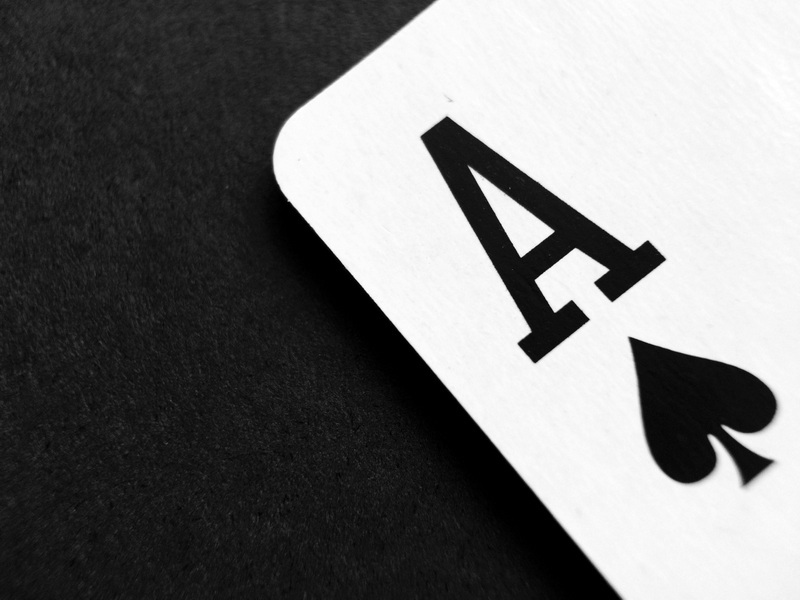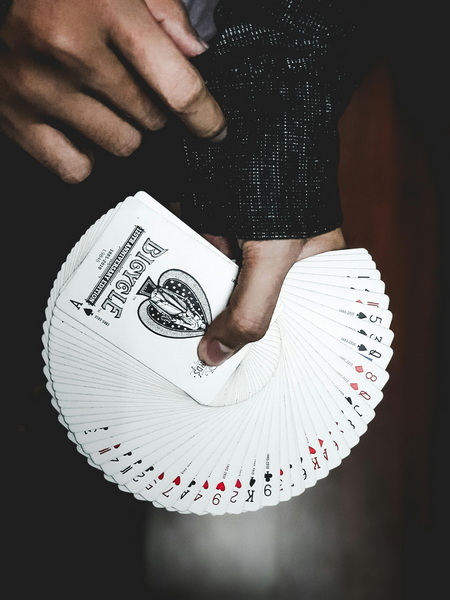Content Menu
● Overview of the Cheat Card Game
● Setting Up the Game
● Basic Rules of Cheat
● Strategies for Playing Cheat
>> 1. Observe Other Players
>> 2. Vary Your Declarations
>> 3. Use Psychological Tactics
>> 4. Know When to Challenge
>> 5. Manage Your Hand Wisely
● Variations of Cheat
>> 1. Multiple Decks
>> 2. Different Card Values
>> 3. Time Limits
>> 4. Team Play
>> 5. Wild Cards
● Tips for New Players
● Conclusion
● Related Questions
>> 1. What are some common mistakes new players make in Cheat?
>> 2. Can I play Cheat with two players?
>> 3. How do I improve my bluffing skills?
>> 4. Are there any age restrictions for playing Cheat?
>> 5. What happens if someone runs out of cards?
The Cheat card game, also known as "I Doubt It," is a fun and engaging party game that revolves around deception, strategy, and a bit of luck. This game can be played with a standard deck of cards and is perfect for gatherings with friends or family. In this article, we will explore the rules, strategies, and tips for playing Cheat, ensuring you have all the information you need to enjoy this exciting game.

Overview of the Cheat Card Game
Cheat is typically played with four to eight players. The objective of the game is to be the first player to get rid of all your cards. Players take turns playing cards face down while declaring their rank. However, players can lie about the rank of the cards they are playing, making it essential for others to decide whether to believe them or call their bluff.
Setting Up the Game
To set up the Cheat card game, follow these steps:
1. Gather Players: Assemble a group of four to eight players. The more players, the more exciting the game becomes.
2. Choose a Dealer: Select one player to be the dealer. The dealer shuffles the deck and deals all the cards evenly among players.
3. Organize Cards: Players should keep their cards hidden from others. It's important not to reveal any information about your hand.
4. Decide on Play Order: Determine who will go first. This can be done randomly or by any method agreed upon by the players.
Basic Rules of Cheat
Understanding the basic rules is crucial for playing Cheat effectively:
1. Starting Play: The player who goes first must play one or more cards face down and declare their rank (for example, "two threes"). They can either tell the truth or lie about the cards they are playing.
2. Calling Cheat: After a player declares their rank, any other player can call "Cheat!" if they believe that player is lying. If a challenge is made, the player must reveal their cards.
3. Consequences of Calling Cheat:
- If the challenged player was lying, they must pick up all the cards in the center pile.
- If they were telling the truth, the challenger must pick up the pile instead.
4. Continuing Play: After a successful turn (whether challenged or not), play continues clockwise around the table.
5. Winning the Game: The first player to get rid of all their cards wins the game.
Strategies for Playing Cheat
While luck plays a role in Cheat, employing effective strategies can significantly enhance your chances of winning:
1. Observe Other Players
Pay attention to how other players behave when they declare their ranks. Look for patterns in their bluffing tendencies and body language that may indicate whether they are lying or telling the truth.
2. Vary Your Declarations
To avoid becoming predictable, mix up your declarations. Sometimes play a card that matches your declared rank and other times bluff with different ranks. This unpredictability makes it harder for others to call your bluffs.
3. Use Psychological Tactics
Bluffing is an essential part of Cheat. Use psychological tactics such as maintaining eye contact or feigning confidence when declaring your rank to influence other players' perceptions.

4. Know When to Challenge
Timing is crucial when deciding whether to challenge another player's declaration. If you suspect someone is bluffing but have no solid evidence, it may be better to let them play their turn and gather more information for future rounds.
5. Manage Your Hand Wisely
Keep track of which ranks have already been played and adjust your strategy accordingly. If many cards of a particular rank are already on the table, it may be wise to avoid declaring that rank in future turns.
Variations of Cheat
Cheat can be adapted in various ways to keep gameplay fresh and exciting:
1. Multiple Decks
For larger groups, consider using multiple decks of cards combined together to ensure everyone has enough cards to play with.
2. Different Card Values
Instead of traditional ranks (Ace through King), assign different values or create unique ranks that players must declare during gameplay.
3. Time Limits
Introduce time limits for each player's turn to increase pressure and excitement during gameplay.
4. Team Play
Form teams where players work together to eliminate their opponents' cards while strategizing on when to call out bluffs.
5. Wild Cards
Incorporate wild cards that can represent any rank during gameplay, adding an extra layer of strategy and deception.
Tips for New Players
If you're new to Cheat, here are some tips to help you get started:
- Start with fewer players until you become comfortable with the rules and strategies.
- Practice your bluffing skills in casual games before playing competitively.
- Communicate openly with other players about house rules before starting.
- Keep track of which ranks have been played; this will help you make informed decisions during your turn.
- Have fun! The primary goal of Cheat is enjoyment, so don't take it too seriously.
Conclusion
The Cheat card game is an entertaining way to engage with friends and family while testing your skills in deception and strategy. By understanding its rules, employing effective strategies, and adapting variations to suit your group's preferences, you can enjoy countless hours of fun playing this classic card game.
As you become more experienced in playing Cheat, you'll find that each game offers unique challenges and opportunities for clever play. Whether you're bluffing your way through rounds or calling out others on their lies, every moment in this game adds excitement and laughter to your gatherings.

Related Questions
1. What are some common mistakes new players make in Cheat?
New players often struggle with bluffing effectively or fail to observe other players' behaviors closely enough, leading them to miss opportunities for calling out bluffs.
2. Can I play Cheat with two players?
While Cheat is best enjoyed with four or more players, it can be adapted for two players by using multiple decks or changing some rules for an engaging experience.
3. How do I improve my bluffing skills?
Improving bluffing skills involves practicing reading body language, varying your declarations during gameplay, and gaining confidence through experience in casual games before competing seriously.
4. Are there any age restrictions for playing Cheat?
There are no strict age restrictions for playing Cheat; however, younger children may need assistance understanding the rules and strategies involved in gameplay.
5. What happens if someone runs out of cards?
If a player runs out of cards during gameplay but has not yet won, they must sit out until another round begins unless house rules allow them back into play with new cards.
































